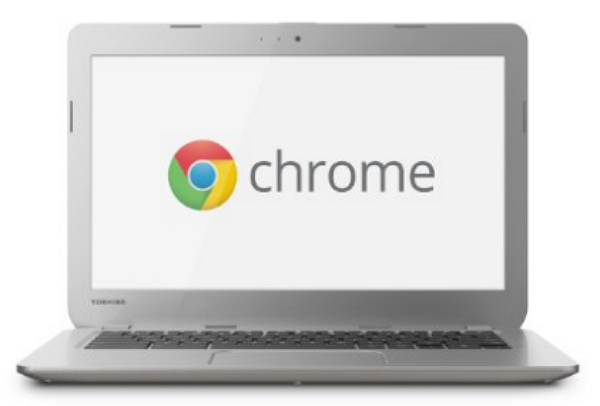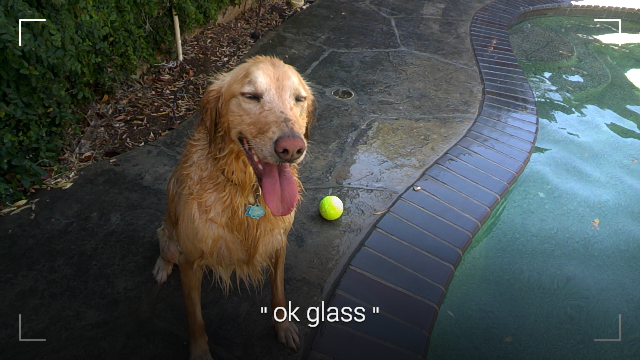
Amazon makes paid Android apps free for two days only -- download them ASAP!
While the Amazon Appstore's app selection is not as abundant as the Google Play store, it does have many premium apps. One of the most endearing qualities of Amazon's store is that every day, it offers one paid app for free. If you check it every day, you can discover some great and not-so-great apps. However, it is tedious to check it every day and easy to forget too.
Today, Amazon is deciding to be generous and delivers 31 awesome paid apps for free. That's right, you pay nothing for 31 apps that combined would normally cost over $100. There must be a catch right? Well, sort of -- they are only free for two days. Read on to take advantage.

How to install Android L preview on your Nexus 5, 7
At the I/O 2014 conference, Google showcased the latest version of Android, known only as L until its official launch later this year. Compared to its predecessor, KitKat, it comes with 64-bit support, design changes, the ART runtime running the show, tightened security, battery life and performance improvements, notifications tweaks, new APIs and more.
Android L may not yet be ready for prime time, but a preview version is now available for Nexus 5 and Nexus 7 (2013 Wi-Fi model), giving users the option to get comfortable with the slew of changes it introduces. Here is how you can download and install it.

Google Cardboard is a real thing -- strap a smartphone to your face
Google is a cool company. Regardless of what you think about its services or products, you cannot deny the cool-factor that it has. However, can a person or company be too cool? What I mean is, can the cool actions become tiring and possibly even annoying? Remember when Fonzie jumped over a shark on Happy Days?
I'm not saying Google "jumped the shark", but today, the search-giant may have crossed the line into being a parody of itself with a new project called Cardboard. The name is quite literal -- Google wants users to fold cardboard in the shape of a face mask that will ultimately turn the user's smartphone into a makeshift virtual-reality mask. Yes, Google is asking us to strap a smartphone to our faces. Umm, cool?

Google brings the marriage of Chrome OS and Android closer
Ever since Google released its two operating systems -- the one for computers and the one for phones and tablets -- users have talked of a merger of the two. So far that hasn't happened, and at Google I/O today it still didn't. But things got a bit cozier.
The company unveiled closer integration between the two platforms, bringing phone notifications to your computer. Is your phone ringing? Your Chromebook will popup a notice telling you who it is. Got a text message? That too will appear on your notebook. In fact, Chromebooks will even notify you of low battery life on your mobile device, letting you know it's time to charge it.

Google revs up Android Auto, its Apple CarPlay rival
As expected, one of the big new announcements at Google’s I/O conference was Android Auto which takes Google’s mobile operating system into vehicles.
Android Auto runs on your smartphone but the apps and features are mirrored and can be controlled through a touchscreen in the vehicle. The car-specific interface is a simplified version of the forthcoming (and unnamed) Android L release, with larger less distracting 'touch targets'.

Google brings out the big guns -- unlimited storage for $10 per month and Office editing
At I/O 2014 Google announced that more cloud storage will be made available to space hungry users. Google Drive for Work has a price tag of $10 per month and includes not just more cloud storage, but unlimited cloud storage. Well, there is one limitation; individual files cannot exceed 5TB, but this is, for all intents and purposes, a deal that is unlimited by most people's understanding of the word. As the name suggests, this is a product that is aimed at businesses, but at this price it is hard to imagine that there won’t be swathes of home users looking to take advantage of the package.
A few months back, Google slashed the cost of its cloud storage packages, but today's news is something quite different. Worries about security may be allayed by the news that Drive, Gmail and Calendar data will be encrypted at data centers. IT admins will also be able to audit and control options, that means internal security policies can be implemented as required.

Watch the Google I/O 2014 keynote here
It's a big day for Google as the search giant's annual developer conference kicks off with what promises to be a very exciting keynote.
So what can we expect Google to unveil later today? Well it’s a good bet we’ll be treated to news of Android 5.0 Lollipop (or some other sweet beginning with L -- Liquorice, Lemon Meringue Pie, Lion Bar, or Lifesavers are possibilities too). Hardware that might be announced include a new Nexus 10, the Nexus 8, Google Android Wear watches, Google Project Tango tablets, the modular Project Ara smartphone, the Google Auto Link in-car system, and a set top box to rival Apple TV.

ID stealing cloned banking app found on Play Store
A cloned banking app which steals user login credentials has been discovered on the Play Store this week. Mobile security company Lookout discovered the app and informed Google which immediately removed it.
The malware, called BankMirage, targets the customers of an Israeli bank called Mizrahi Bank -- the fourth largest in the country. The authors of the app placed a wrapper around the bank's legitimate app and redistributed it on the Google Play store, pretending to be the financial institution.

Google announces better Glass, new Glassware
Following feedback received from early adopters (known as Explorers), Google has announced a significantly revised Glass wearable. But, unlike prior iterations, it looks like this one will not be available as a free-of-charge upgrade for current users, who will now have to pay full price to get the latest and greatest.
The improved Google Glass is touted to offer better performance courtesy of a RAM capacity increase to 2 GB, which is 1 GB more than before (prior versions only allowed 682 MB of RAM to be effectively used, making the difference quite substantial). There are also more Google Now cards available, which will display extra information like shipping delivery estimates and car location.

Google's Nest thermostat hacked with Linux -- backdoor enabled on device
Sometimes it feels like the whole world went and got crazy. It's true, with every passing day, all types of newfangled gadgets, doodads and wild ideas are released. Google is at the forefront, with Google Glass, self-driving cars and Nest internet-connected thermostats. Truth be told, I'm hardly a Luddite, but I am wary of having a computer and camera strapped to my head or having my home connected to the internet.
I am not scared of the technology, but of the hackers. You see, anything connected to the internet has the capability of being hacked or exploited. This makes me hesitant to embrace the connected home. Think I'm crazy? Think again. Today, popular Google TV hacking site GTV Hacker, announces it has hacked the device to enable the booting of unsigned code. If you own a Nest, hackers could have a backdoor into your home.

Google starts testing new domain registration service -- Google Domains
In many regards, it is rather surprising that it didn’t happen sooner -- today Google announces it is testing a new domain registration service aimed at businesses. Google Domains is currently an invite-only service, and it has taken the search-giant a very long time to get in on the website game. Once fully up and running, "businesses will be able to search, find, purchase and transfer the best domain for their business -- whether it's .com, .biz, .org, or any of the wide range of new domains that are being released to the web".
At the moment, the service is concerned only with domain registration. However, partnerships with the likes of Shopify, Squarespace, Weebly, and Wix.com suggest that storage and web building options will also be in the cards. Few details have been released about just what we can expect from Google Domains, but the About page does give something of an insight. Standard features such as domain forwarding and domain management tools are complemented by customizable sub-domains and email accounts that can be forwarded to existing Gmail addresses.

Microsoft ups the ante with 1TB of free cloud storage for Office 365, 15GB for OneDrive
Just three months ago we saw the start of the cloud storage price wars when Google slashed its prices. Today Microsoft has retaliated by offering a massive increase in the amount of free cloud storage available to OneDrive and Office 365 customers. The company's recently renamed storage service jumps from 7GB of free space to 15GB -- although those with reasonable memories will recall that it is not all that since SkyDrive customers were given 25GB free of charge. But it doesn’t end there. Every version of Office 365 will now come with 1TB of free space as standard.
The figure for OneDrive has not just been plucked out of the air. "Our data tells us that 3 out of 4 people have less than 15 GB of files stored on their PC. Factoring in what they may also have stored on other devices, we believe providing 15 GB for free right out of the gate – with no hoops to jump through – will make it much easier for people to have their documents, videos, and photos available in one place."

Apple, Google and the kings of 'abandonware'
"Abandonware". It’s the scourge of the industry. Every time a vendor abandons a software product, a puppy dies. Or an orphan. Or a Java developer.
Regardless, nobody likes to see their favorite app/game/platform get left behind. It’s the worst kind of techie betrayal. You spend days, weeks or even months mastering a product only to have the virtual rug pulled out from under you.

The most popular stories on BetaNews this past week: June 15 -- 21
This is the week of the Surface Pro 3. Brian had already attended the launch event earlier in the month, and has provided an essential list of hardware and software purchasers need to grab for the best all round experience -- he even goes as far as suggesting that it's better than a MacBook Air. Even before launch there was an update available for the tablet-cum-laptop, and there was also news that the Intel Core i3 and i7 models would be shipping earlier than previously expected. But not all of the products we looked at this week were quite so "every day". There was the wifi doorbell complete with camera, and also the prospect of charging your phone wirelessly with your pants -- yes you did read that correctly.
The Windows Phone market is dominated by Nokia, but a new batch of handsets has been unveiled by Indian manufacturer Micromax. If Android is your mobile OS of choice, you may be thinking about venturing into the rooted world. This week a new tool was released that makes the process as quick and painless as possible, opening up a whole new breed of apps and options. Joe decided to take a walk on the wild side and adopt the Nokia Lumia Icon as his phone of choice. In the Android arena, a new contender entered -- the Amazon Fire Phone. Will a kill switch be added? Microsoft and Google have agreed to add it to their mobile operating systems.

Google uses Nest as a middleman to buy Dropcam
Google has been on a buying-spree lately. It feels as if the company is a nouveau riche lottery winner with money just burning a hole in its pocket. I guess in some ways, the company did win the lottery and its users' information is the winnings. You see, the search-giant earns a lot of money from advertisements and harvesting user info, but to continue that success, it cannot rest on its laurels.
With the acquisition of Nest, Google obtained an ability to earn money from hardware and home services, expanding on its existing business focus. However, while Nest represents an expansion, it also represents "business as usual", as the search-giant can eventually utilize home-automation for advertising and harvesting data too. Today, Google buys a company called Dropcam, which offers cloud-based home video monitoring. Clearly, Google wants to be in our homes, but will you put out the welcome mat?